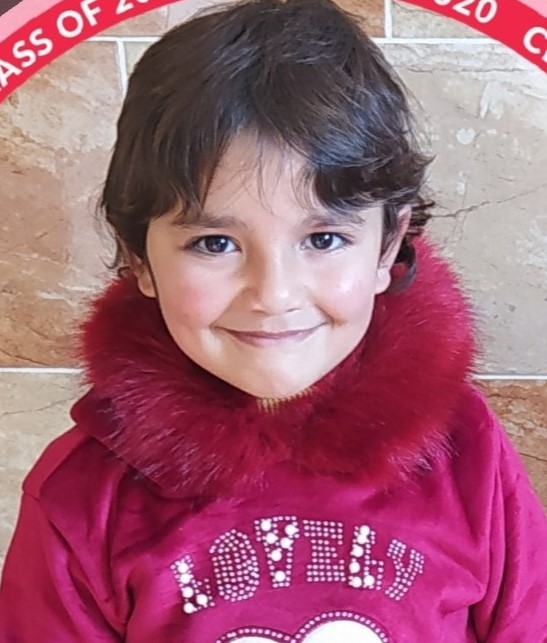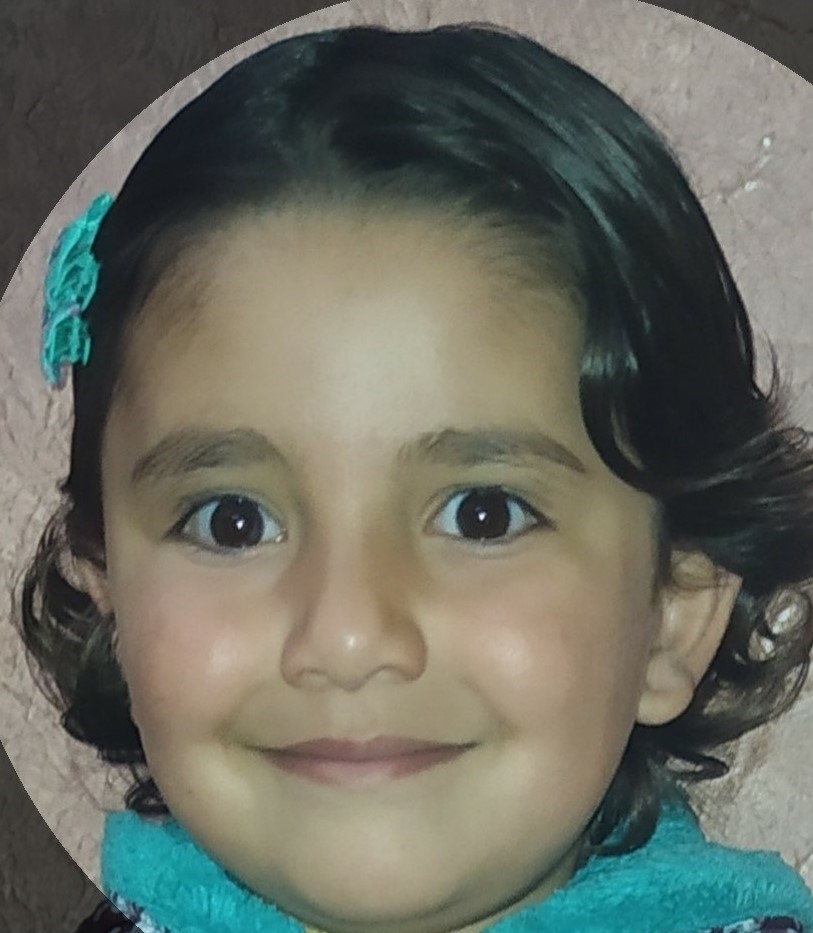 29 April 2021 - Jana is 4 years old from Jabalia, in the north of Gaza City. She was diagnosed with cancer in 2018 and underwent surgery to have a tumour in her bladder removed in January 2019.
29 April 2021 - Jana is 4 years old from Jabalia, in the north of Gaza City. She was diagnosed with cancer in 2018 and underwent surgery to have a tumour in her bladder removed in January 2019.
WHO first met Jana in January 2020, when she had been unable for several months to obtain Israeli-issued permit to access radiotherapy treatment at Augusta Victoria Hospital, located in East Jerusalem, a different part of the occupied Palestinian territory. On 16 February 2020, after a four-month delay in her access, Jana and her mother were able to travel to reach health care outside the Gaza Strip.
The outbreak of COVID-19 occurred in the occupied Palestinian territory on 8 March 2020, with the first cases detected in Bethlehem. Since that date, Jana travelled to East Jerusalem for health care twice. From 16 February to 20 May 2020, she completed a course of chemotherapy and radiotherapy at Augusta Victoria Hospital. Jana returned on 29 June for further investigations, and was discharged on 13 July. Since this time, Jana has been followed up for palliative treatment in the Gaza Strip, although drugs shortages, lack of trained staff, and the demands of the emergency response to COVID-19 have all posed a challenge to her receiving the quality of care that she needs. Dr Mahmoud Shbair, a paediatric oncologist at Rantisi Hospital, commented on some of these challenges: “We often give high doses of morphine and fentanyl to patients with advanced cancer, to try to effectively control their pain. But we often run out of painkillers. We need staff training for palliative care, as well as sufficient drugs and the right equipment.”
Jana’s father told WHO, “Doctors in East Jerusalem told us there was nothing more that could be done for Jana. We went to Rantisi Hospital in Gaza on 24 August for follow up and her doctor there said the same. So, we are taking care of Jana at home. We go to Rantisi Hospital from time to time, but things have become difficult with coronavirus. We try to avoid taking her to hospital.” The systems for palliative care are not well developed in the Gaza Strip, where rates of poverty and unemployment also affect the ability of families to purchase even basic painkillers from private pharmacies.
Palliative care aims to improve quality of life for patients and their families and reduce suffering for persons with life-threatening illnesses, with the integration of physical, psychosocial, and spiritual aspects of patient care. Palliative care is an essential part of the right to the highest attainable standard of health, while palliative care medicines – including those needed for proper relief of pain and suffering – feature in the Essential Drugs Lists of WHO and the Palestinian Ministry of Health.
Dr Bushra Lubad is Head of the Intensive Care Unit in Rantisi Paediatric Hospital in the Gaza Stip. She stated, “Palliative care is needed from the initial point of care, it’s not only for patients in terminal stages of illness. It’s also needed for many conditions, not just cancer. We need to take care of children with kidney failure, cystic fibrosis, neurological, and other chronic diseases from all hospital departments.” Her team comprises two doctors, five nurses, a pharmacist, a psychologist, and a volunteer spiritual therapist. They have worked to strengthen palliative care for their patients in the hospital, but protocols for referral to palliative services are not well established and Dr Lubad points to a need for greater awareness, improved capacities, standard guidelines, and better integration of palliative care across the health system. At Rantisi Hospital, the team serves children who are staying as inpatients only and the service is in its early stages, established since September 2019 and working across different departments. “There is no palliative care department or even a room where a doctor or nurse can receive patients for palliative care consultations. An outpatient clinic for palliative care is still a dream!”
The sole psychologist at Rantisi Hospital often has to function as a social worker as well. She explained, “I talk to patients and their families to try to provide psychological support. However, many of them are facing severe hardship and they really need social interventions and assistance. But I don’t have anywhere to refer them to. Many times, we can’t afford basic materials to keep the children amused, like coloring books, crayons, and paper. I can only see the children staying as inpatients, but these children and families need help outside hospital too. The health staff in the hospital suffer psychologically, and they also need someone to take care of them.”
Jana’s ability to walk and play has become limited due to her illness and these days she gets tired quickly. One of the effects of her cancer is that it can stop her from passing urine, which has been happening once or twice each month in recent times. According to Jana’s father, “When this happens, we take her to Rantisi Hospital or to a private clinic. A nurse who lives near us has also come to help sometimes.” The family buys Jana simple pain relief medicines at the local pharmacy and do not receive psychosocial support at home. They continue to hope for a cure for Jana. Her father added, “If we knew of a place they could cure Jana we would do anything, even sell the house. We keep looking for the possibility of referring her outside for help.”








